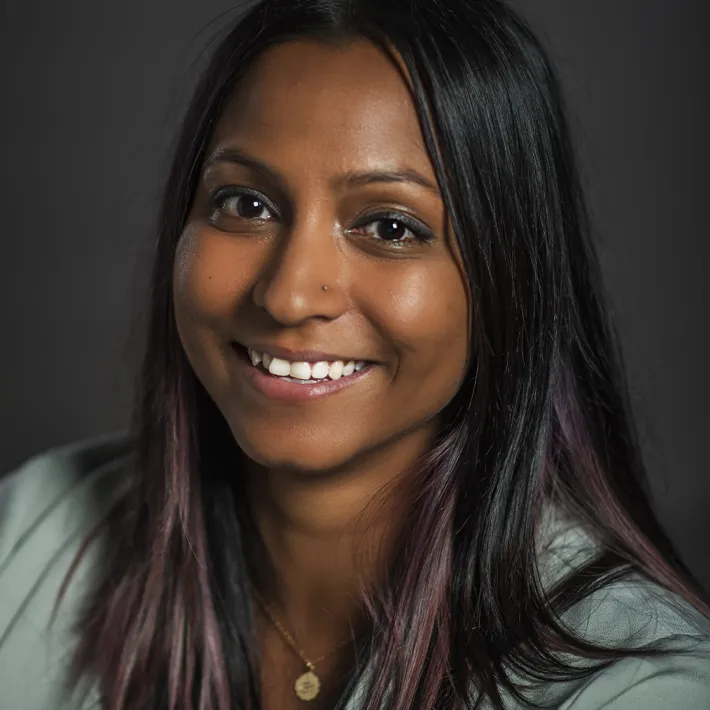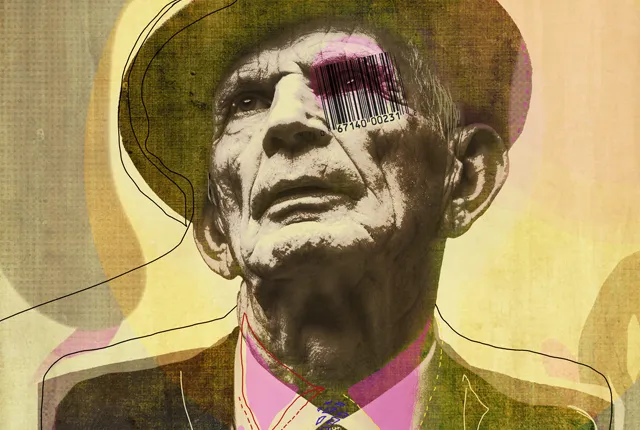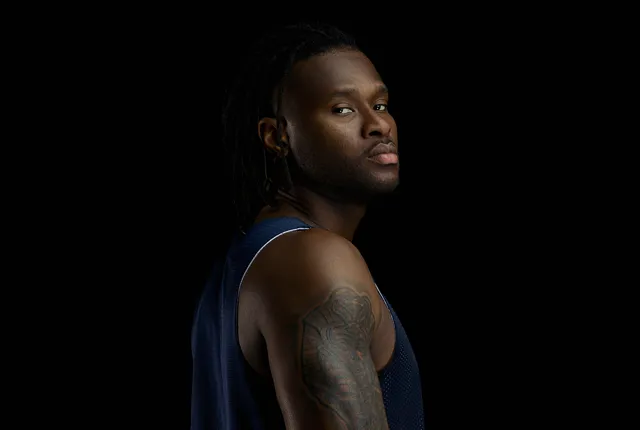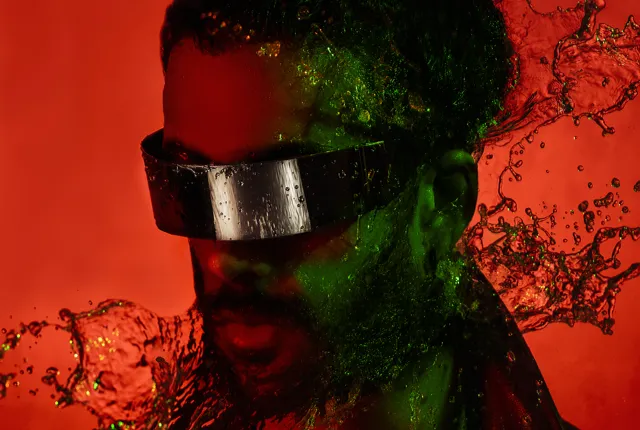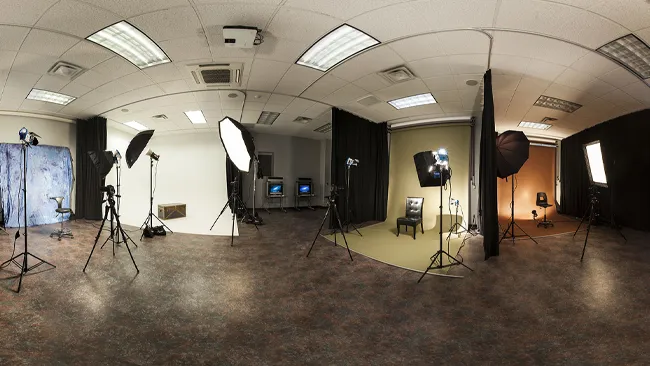
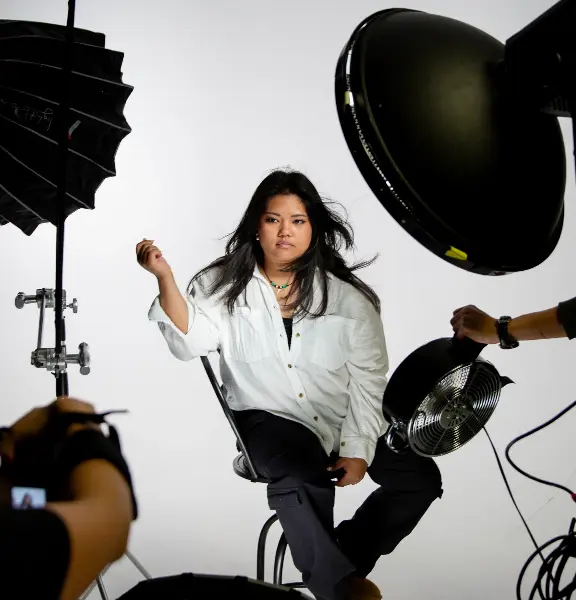
Photography
Overview
Students learn from current and award winning industry leaders who share the secrets they've learned through their decades of photography experience.
Today's successful photographers know more than just their cameras: they're also ready to design, edit, market, connect, and sell. Our students prepare for this fast-paced and ever expanding career using modern digital photographic equipment in a state-of-the-art photography studio.
Photography students at Lambton College are encouraged to follow their passion as they explore diverse photographic interests, all while developing the technical skills necessary for creative control. The curriculum covers a broad range of topics, including design and composition, digital darkroom, lighting and camera skills, and portfolio development. Students have the opportunity to collaborate with classmates as they photograph events both on and off campus, and a photography field study in New York City during second year challenges students to expand their horizons. See some of our students' work from previous classes by visiting Lens on Lambton.
Students learn from current and award winning industry leaders who share the secrets they've learned through their decades of photography experience.
At the core of the Photography program is our state-of-the-art photography and video studio, equipped with strobe, video and continuous light kits. Students work in this space, both individually and in small groups, using professional-quality equipment from our loan department.
Artistic career aspirations become a reality with Lambton College's Photography program.
Lens on Lambton
Students have the opportunity to collaborate with classmates as they photograph events both on and off campus, and they participate in a field study trip to New York City during the second year of the program.
See some of the student's work below.
Admission Requirements
O.S.S.D. or equivalent with:
- Grade 12 English C or U
Mature Student Assessment for this program is available in the subject of English for the purpose of demonstrating proficiency in this required admission subject. For all other admission requirements, applicants must complete the required course(s) as listed above. For more information, please contact counselling@lambtoncollege.ca. Review the Mature Student Admission process.
Academic admission requirements can be obtained through Academic Upgrading and the Pre-Programs at Lambton College.
Discover why our program is different
Learn from Legends Behind the Lens
Lambton College Photography Coordinator Richard Beland is celebrating four decades of capturing music's defining moments with the release of his new book, Our Immortal Stars, Vol. 1.
Featuring over 200 photographs spanning nearly 40 years of music history, Beland’s work has appeared in Rolling Stone, SPIN, and Maclean’s. His artistry and industry experience bring real-world insight to every Photography class at Lambton College.
Learn from professionals shaping the industry and start your creative journey today.

Costs
- Year 1 $4,456.71
- Year 2 $5,066.68
Please Note: These fees apply to the 2025-2026 academic year and are subject to change. Fees do not include books (unless specifically noted), supplies or living costs.
Additional Fees
Incidentals
- Memory Card
- Students should buy an additional memory card for their camera (32 GB minimum at $50 each) and we suggest 1 TB ($50 - $250) external hard drive for their computer.
- Travel to Field Studies
- Students in this program participate in optional and/or mandatory field studies. There may be small additional costs and students will be required to find their own transportation to these field studies.
- Drone Photography Course
- DPH-2703 will be held at the Fire School at 459 LaSalle Line, Sarnia.
Students will be required to find their own transportation to the Fire School.
Technology Requirements
In order to be prepared for the course work in this program there are specific computer, software, and camera requirements. Please see the More Information tab.
Labs & Equipment
Courses
Digital Photography Techniques I
This course is the introduction to the fundamentals of digital photography and primarily focuses on technical aspects associated with digital cameras, lenses, and associated equipment. The learning is evaluated through assessments that have been designed to promote technical, creative and critical thinking, while encouraging the students to take a practical approach at capturing quality images. This course is delivered in a hybrid delivery method, meaning, two hours per week will take place in-class/studio/on-location while the remaining hour will be provided on-line.
Workplace Communications
In this course, students write and speak in response to realistic workplace scenarios to build practical communication skills. They produce, revise, and edit written communication geared to the workplace and practice the oral communication and effective listening skills that will help them succeed in professional environments.
Design & Composition for Photographers
In this course students analyze the internationally recognized criteria for good image composition and design principles in photographic and multimedia applications. The Rule of Thirds (with layers), diagonals, texture, colour versus black and white, viewpoint and perspective, contrast and the theory of light and colour will be explored. Students will apply basic industry standards to critique the work of their peers and themselves.
Lighting Techniques I
This course provides an introduction to choosing the appropriate light for your creative vision and making informed technical decisions about this light. By using demonstrations, theory, and practice, students will be given an opportunity to explore methods for the control and manipulation of available light sources. Emphasis is placed on lighting principles, quality of light, techniques and effective use of associated equipment. The learning is evaluated through assessments that have been designed to promote technical, creative, and critical thinking while encouraging the students to take a practical approach to capture quality images. This course is delivered in a hybrid delivery method, meaning, two hours per week will take place in-class/studio/on-location while the remaining hour will be provided on-line.
Digital Darkroom I
This course is an introduction to Adobe Photoshop, Camera Raw, and Bridge with an emphasis on image processing. Students will learn to use essential retouching tools and begin to develop professional, industry-standard techniques. Foundational skills for restoration, image manipulation and black and white conversion will be covered.
General Education Elective
History of Art & Photography
This course will study the history of photography from its inception, including both technological and artistic innovations in Canada and around the world. The course will also provide an overview of Art History, concentrating on the period from the Old Masters through to modern times. Students will relate the posing, lighting, and composition of artists to photographic techniques. Students do NOT require a camera.
Digital Photography Techniques II
Digital Photography Techniques II is a continuation of DPH 1003 and explores advanced techniques and theories of digital photography. The course will consist of discussions, demonstrations and supervised shooting with an emphasis on shoot production and studio management. The learning is evaluated through assessments that have been designed to promote technical, creative and critical thinking, while encouraging the students to take a practical approach at capturing quality images. This course is delivered in a hybrid delivery method, meaning, two hours per week will take place in-class/studio/on-location while the remaining hour will be provided on-line.
Digital Darkroom II
Instead of using conventional darkrooms, today's photographers process digital images using computer software and monitors. Digital Darkroom II explores advanced digital image editing and processing, printmaking, colour calibration, enhancement techniques and asset management using Adobe Photoshop and Bridge. The learning is evaluated through assessments that have been designed to promote technical, creative and critical thinking, while encouraging the students to take a practical approach at editing and creating quality images.
Lighting Techniques II
Lighting Techniques II is a continuation of DPH 1403. This course analyzes principles and practices of studio and location lighting using available, continuous and studio strobe light sources. It also provides students with technical and theoretical skills in lighting ratios, traditional portrait lighting techniques and three-dimensional contrast as well as emphasizing the importance of safe handling and management of studio lighting equipment. The learning is evaluated through assessments that have been designed to promote technical, creative and critical thinking, while encouraging the students to take a practical approach at capturing quality images.
Portrait & Wedding Photography I
This course provides extensive hands-on instruction on posing and capturing professional quality portraits and weddings, in the studio and on location. Students will also be taught the skills of running a portrait studio including marketing, pricing, dealing with clients and sourcing suppliers.
Drone Photography I
This course combines the thrill of flying with the artistry of capturing aerial imagery. Throughout the course, students master a range of flying techniques, including precision control, maneuvering in challenging environments, and executing cinematic shots. Additionally, students delve into the principles of composition and storytelling to craft visually compelling photographs from a unique aerial perspective. Through a series of engaging photography exercises and hands-on flight sessions, students refine your skills and develop your own style. The course culminates in the creation of a portfolio that showcases student abilities and allows them to promote their expertise and open doors to exciting opportunities in the world of aerial photography. Students must have successfully passed the Transport Canada Basic Drone Certification before being allowed to fly any drone over 249g as per current Canadian law.
General Education Elective
Popular Culture for Photographers
Industries of popular culture like fashion, music, art, and entertainment all enjoy a close relationship with photography. Mindful photographers are driven by popular culture to capture its most striking features and create provocative images that resonate with viewers. In turn, popular culture influences contemporary movements in visual art and photography. By practicing mindful critical thinking, students will identify, interpret, and evaluate popular culture's dialogue with the photographic arts. The learning is evaluated through assessments that have been designed to examine the reciprocal relationship between popular culture and photography. This course is delivered in a hybrid delivery method, meaning, two hours per week will take place in-class/studio/on-location while the remaining hour will be provided on-line.
Digital Darkroom III
Instead of using conventional darkrooms, today's photographer processes digital images using computer software and monitors. Digital Darkroom III explores advanced digital image editing and processing, printmaking, colour calibration, enhancement techniques and asset management using Adobe Photoshop, Camera Raw, and Bridge. The learning is evaluated through assessments that have been designed to promote technical, creative and critical thinking while encouraging the students to take a practical approach to edit and creating quality images and prints.
Photo Journalism
This course emphasizes the story-telling aspects of photography. From the historical importance to the ability to enact societal changes, photography is a powerful media that has a huge presence in our lives. With that presence, comes the ethical and moral issues that a Photojournalist must consider and understand. The course explores the many facets of Photojournalism including sports, documentary, news, feature, and portraiture photography.
Commercial Photography
Recognize the inter-relationship between theory and practice of photography and the range of professional and commercial applications of photographic technique. The course explores commercial photography, the creation, sub-categories, marketing, sales and value of images produced for corporate, marketing and business purposes.
Portrait & Wedding Photography II
This course explores the contemporary and historical methods of portrait and wedding photography. Through lectures and in-class demonstrations, students develop the skills of posing and capturing, as well as marketing and sales, of unique and professional quality portraits.
Drone Photography II
This course combines the thrill of flying with the artistry of capturing aerial imagery. Throughout the course, students master a range of flying techniques, including precision control, maneuvering in challenging environments, and executing cinematic shots. Additionally, students delve into the principles of composition and storytelling to craft visually compelling photographs from a unique aerial perspective. Through a series of engaging photography exercises and hands-on flight sessions, students refine your skills and develop your own style. The course culminates in the creation of a portfolio that showcases student abilities and allows them to promote their expertise and open doors to exciting opportunities in the world of aerial photography. Students must have successfully passed the Transport Canada Basic Drone Certification before being allowed to fly any drone over 249g as per current Canadian law.
The Business of Photography
Being a great photographer is only part of the equation: you also have to be a great business person. A photographer's longevity is based not only on talent and skill, but on the financial aspects of being in business. In this course, we will navigate our way to a successful Canadian photography business through the practice of maintaining your artistic integrity while carefully integrating the components of Canadian business commerce. The learning is evaluated through assessments that have been designed to promote technical, creative and critical thinking.
Video Production
As an introduction to video production, DPH-1703 will teach the fundamentals involved in video content creation from the perspective of a professional photographer. Photography students will learn foundational elements for planning, filming, and editing video productions for personal and professional use. During this course, students will have the opportunity to create their own video productions to showcase their photography work and to promote a local business.
Portfolio Development
A portfolio is a showcase of an artist's best work, and an effective presentation is a vital foundational piece to a professional career. Self-promotion is crucial in the competitive world of photography and creative methods of showcasing your work will garner attention. Developing a collection of outstanding photographs to promote yourself is a key, first step in the pursuit of gainful employment. This course enables you to create and curate an original body of work for display in a public space, on-line, and in a traditional portfolio. Throughout the term, students have ongoing support and the opportunity to receive feedback on their in-process work and completed projects.
General Education Elective
Digital Media & Analytics for Business
This course provides students with a practical and strategic introduction to digital media and analytics in a business context. Students will explore how organizations use digital platforms, including social media, websites, search engines, and email, to build brand visibility, engage audiences, and drive business outcomes. The course emphasizes a data-informed approach, teaching students how to use analytics tools to measure performance, optimize campaigns, and make marketing decisions. Through hands-on learning, students will analyze real-world data, develop digital strategies, and present insights that align with business objectives. Ethical considerations, platform-specific strategies, and customer-centric metrics are integrated throughout. By the end of the course, students will be able to create a basic digital marketing plan supported by analytics and aligned with organizational goals.
The Business of Photography - Studio
Contact
School of Business and Sustainability Leadership
Room B2-106
Program Information
After Graduation
Employment Opportunities
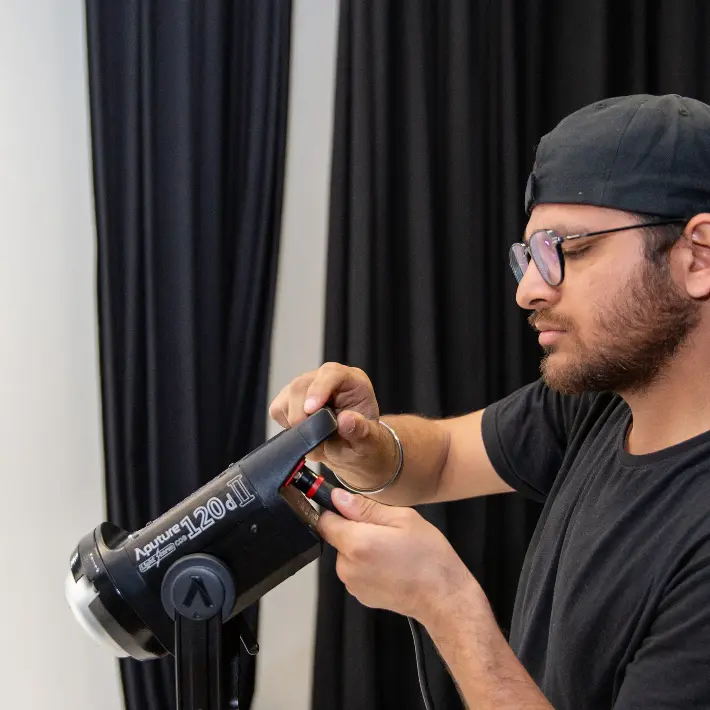
Our graduates pursue a variety of employment opportunities such as travel, sports, portrait, photojournalism, wedding and fashion photographers, photo manipulation, restoration artists and multi-media professionals. Careers exist in commercial, corporate, private and personal businesses.
Graduates are encouraged to understand their niche and pursue it passionately. Relocation should be considered depending on the career aspirations of graduates.
Educational Pathways
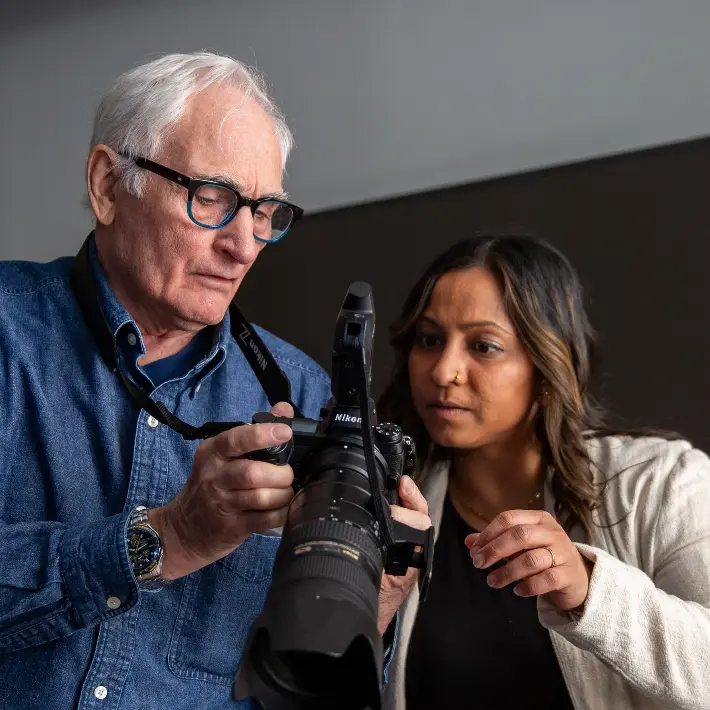
Sheridan College
Graduates of Lambton College's Photography program are eligible to transfer to the Honours Bachelor of Photography - Degree Completion program at Sheridan College. Interested students must have finished Lambton College's program no later than 2005 and must have a GPA of 2.4 or greater.
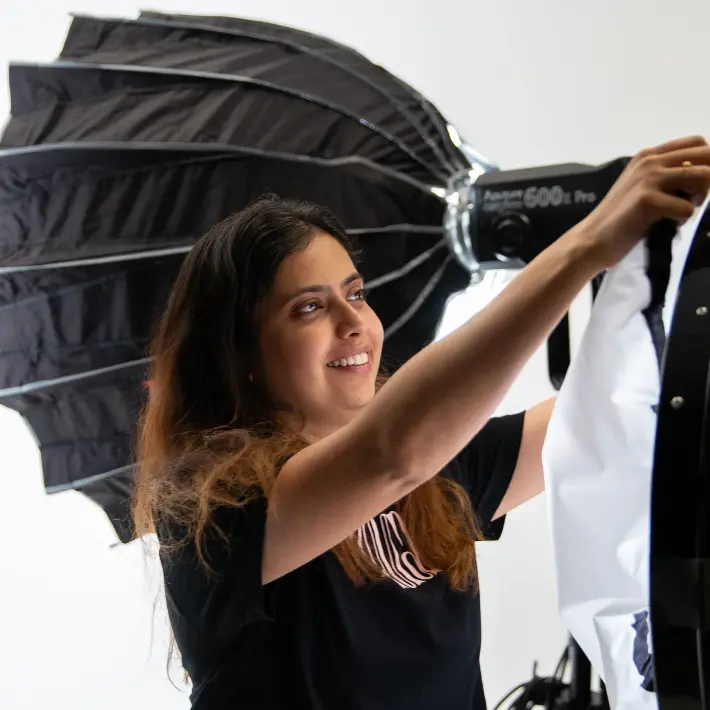
International Center of Photography
After graduating from Lambton College's Photography program, students can enter into the first year of the International Center of Photography certificate program. This one-year program allows for the following three streams:
All students applying to the International Center of Photography follow the same admissions process and submit applications regardless of prior diplomas.
More Information
Technology Requirements
Computer
This program requires a Macbook Pro or a PC with equivalent processing power. There are currently three Macbook Pro models that qualify:
Macbook Options
- 13 inch 2.4 GHz
- Quad-core processor, 256 GB storage
- Available from Apple for $2,399
- 16 inch 2.6 GHz
- 6-core processor, 512 GB
- Available from Apple for $2,999
- 16 inch 2.3 GHz
- 8-core processor, 1 TB storage
- Available from Apple for $3,499
Additionally, a 500 GB or 1 TB external hard drive is recommended.
PC Models
- Dell XPS 15
- CPU: Intel Core i5-7300HG - i7-
RAM: 8GB - 16GB
Storage: 512GB
$1910 - Huawei Matebook X Pro
- CPU: 8th generation Intel Core i5 - i7
RAM: 8GB - 16GB
Storage: 512GB
$1600
Software
With software, do not purchase before enrolling in the program. Usually your letter of acceptance into the program will allow you to purchase Educational versions. The price difference is significant compared to normal prices.
- Adobe CC Master Collection - Creative Cloud
- Student pricing for Creative Cloud is currently $19.99 month.
Camera
Students must have a DSLR or a mirrorless camera that includes a manual mode, as well as a video capability. (If the camera does not have video capability of a minimum 10 minutes, the student must also acquire a video recorder.)
The college will have a collection of specialty lenses that students are encouraged to borrow. It is recommended that students consider one of the following models. Check with the program coordinator if more recent models are available.
- Nikon D780 with 24-120mm lens
- $3,599
- Nikon D7500 with 18-140 VR lens
- $1,599
- Nikon Z5 Mirrorless Kit w/ Nikkor Z 24-50mm f/4-6.3 Lens
- $2,199
- Sony Alpha A7IV Mirrorless Kit w/ FE 28-70mm f/2.5-5.6 OSS Lens
- $3,399.99
- Canon EOS 6D MKII with 24-105 mm lens
- $3,049.99
- Canon EOS R7 w/ 18-150 mm f/3.5-6.3 lens
- $2,499
- Canon EOS Rebel T8i with 18-55 mm lens
- $1,129.99
- Canon EOS R6 w/ RF 24-105 IS STM Lens
- $3,499.99
See our Students' Work
Lens On Lambton
See the amazing work created by our students - visit their website lensonlambton.
Follow Us
Follow our students on Instagram where they showcase their amazing talents.
Meet the Faculty
Richard Beland
- Program Coordinator & Faculty
- Visit Richard's Website

Geoff Robbins
- Faculty
- Visit Geoff's Website

Niki Patel
- Faculty
- Visit Niki's Website
